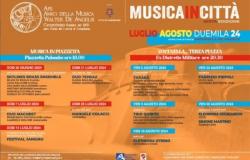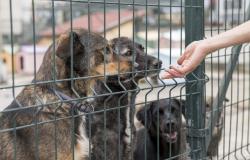The awards ceremony was held yesterday morning for the 2nd A and 2nd B classes of the Guido Novello school, joint winners in the quiz of the ‘A scuola di Tecnopolo’ project, organized for the second edition by Cifla – Fondazione Flaminia, managing body of the Tecnopolo di Ravenna, with the participation of the Municipality of Ravenna. The prizes, two vouchers for the purchase of scientific popular books, were awarded by the director of the Flaminia Foundation Antonio Penso, by the councilor for economic development Annagiulia Randi and by professor Andrea Contin, director of the Fip-We@Unibo laboratory.
Between April and May the students, a total of five classes with more than 120 students, visited the FIP-WE@UNIBO and EnerCube laboratories of the Environment, Energy and Sea Research Center in Marina di Ravenna, one of the three locations of the Ravenna Tecnopolo. Each class involved subsequently took part in a quiz competition to test the knowledge acquired.
The project was born with the aim of making existing research known to stimulate that fundamental curiosity to approach and appreciate the world of innovation and technical-scientific culture. This year, in addition to the classes from the Novello school, some classes from the Alfredo Oriani scientific high school were also involved who in turn visited the laboratories with a more detailed program, suited to their level of study.
As Elisa Ulazzi, community manager of the technopole, explains: “The city of Ravenna has always represented the union between environment and industry. It is a fragile territory that must be protected so that these two realities can continue to coexist. The center was inaugurated with this objective in 1993 by Raul Gardini, the entrepreneur from Ravenna had the dream of making his city a leader in the bioeconomy. Today the center carries out research on renewable sources and low-carbon technologies to improve the environmental impact alongside businesses”.
In the FIP-WE@UNIBO laboratory, the practical applications of biochar are tested, a vegetal carbon obtained from wood waste that is inserted into ovens at very high temperatures. Its characteristics make it a useful ally in various fields: being a very porous material, it lends itself well to the recovery of pollutants, use as a soil improver, the purification of waste water or the treatment of drinking water. Researchers are working to improve its performance so that it can be applied on an industrial scale.
In the EnerCube laboratory, however, new materials are tested for battery prototypes. The objective is to improve performance and overcome the problems of current ones, made up of expensive and unsustainable resources such as lithium and cobalt. The uses of the prototypes include the automotive sector but also batteries for energy storage in solar panels.
The children were fascinated and were able to see first-hand the high technology of the instruments present in the centre, asking their questions directly to the young researchers and taking part in an experimental stand where some applications of biochar were illustrated.






